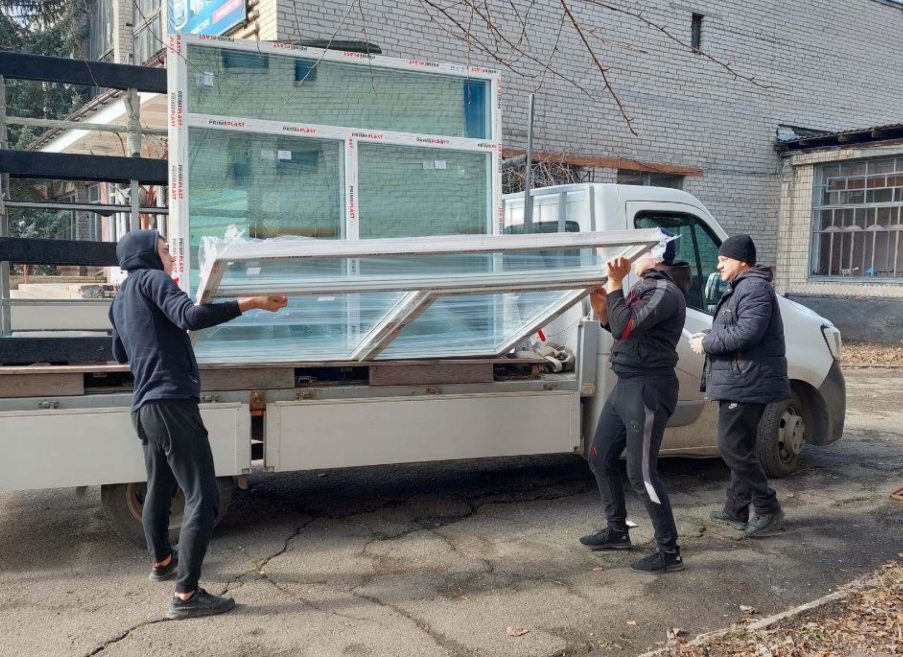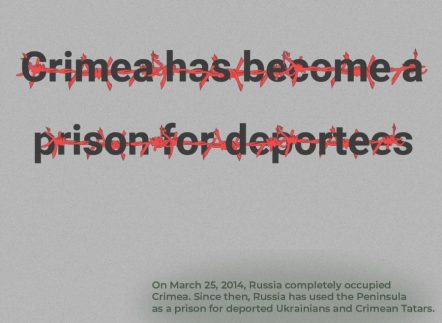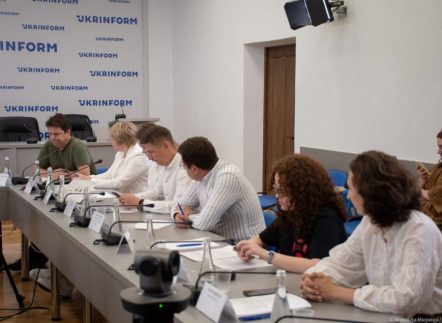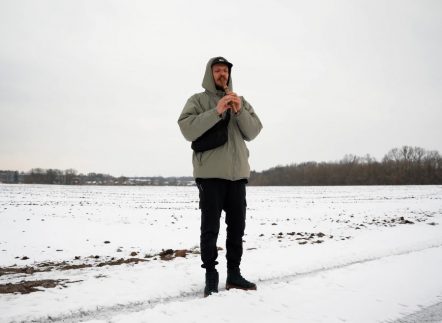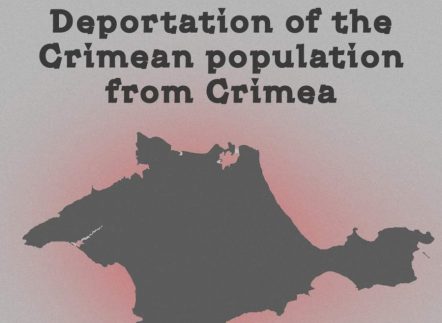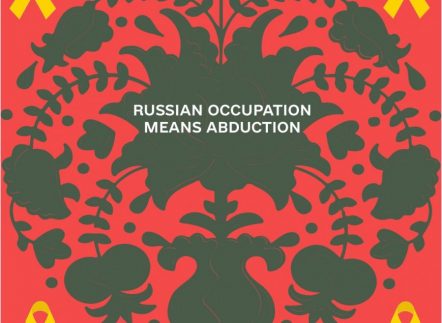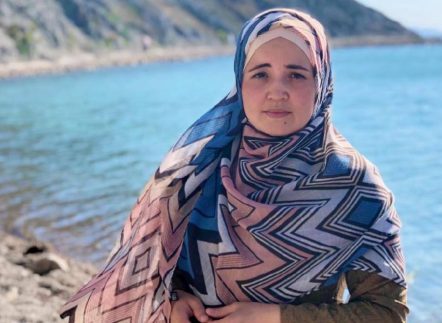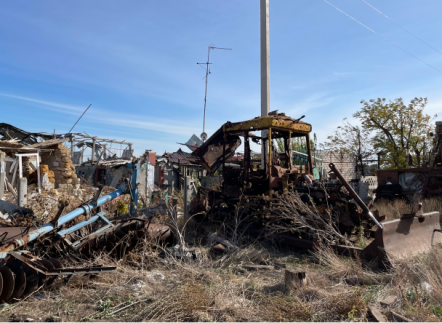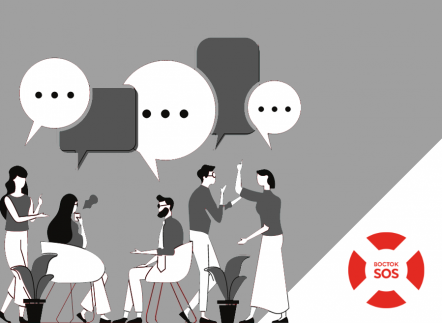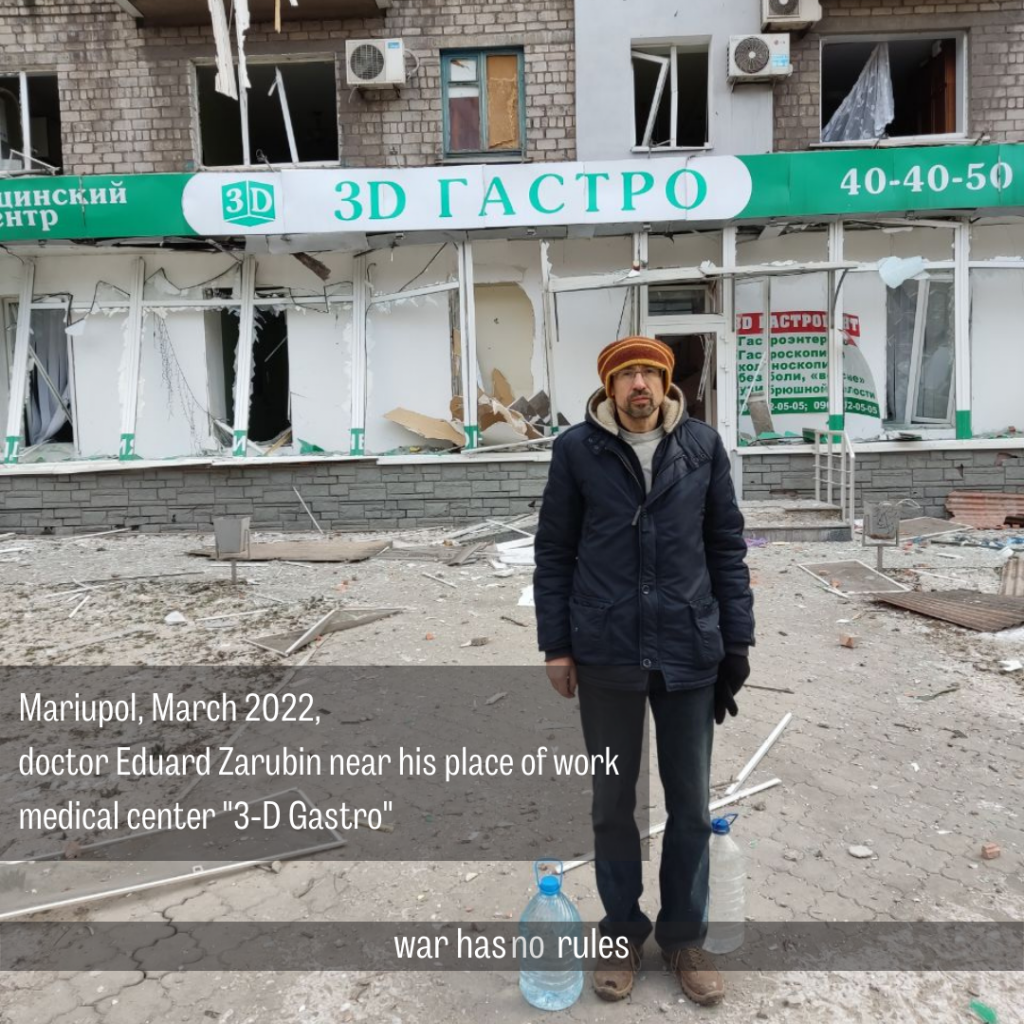
Eduard Zarubin is an urologist from Mariupol. He perceived the first minutes of the russian invasion as another escalation in the armed conflict. Living in the Skhidnyi district, not far from the city’s line of defense, and therefore aware of how different types of artillery are fired, Eduard knew by the sounds that they were firing from something heavier than the 120 mortars banned by the Minsk agreements. They fired from the east, from the temporarily occupied territories. An hour later, the shelling ended, and all members of the family were confident that everything would soon be over, but when the shelling around the city became permanent, it was decided to move to the city center.
The family lived in the new place for two weeks – before leaving the city. Eduard and his son went to the volunteer hub every day, where Mariupol residents gathered to help each other.
At first, Eduard removed people with disabilities who were left without the care of relatives due to hostilities from the Left Bank:
“I was transporting bedridden people. I was given tasks, addresses, the phone no longer worked. I was going to the address. I found the patients in a terrible state. I am a doctor myself, I went home, I have 25 years of practice. Sometimes I went in and was horrified just by the conditions of these disabled people, who are no longer cared for… I brought them food, or at the request of relatives took them to the Right Bank, because the Left Bank was getting worse and worse… So it was until I didn’t run out of fuel.”
Then Eduard and his son sorted medicines, formed orders for medicines, which volunteers delivered to the yards and gave out to the people, because the pharmacies in the city did not work.
As the shelling approached the volunteer hub, the wounded began to arrive.
“Everything happened on an ever-increasing scale,” Eduard describes the situation at the time. – “Shells began to fly. People began to come directly blooded. We organized a dressing room at the volunteer center. Conducted light, made relatively clean conditions. Applied dressings, antiseptics… Found suture material. There was one guy, a vet, he had needles, threads and scalpels… Basically, the tool is the same for animals and humans. We sterilized everything as much as we could, sewed it up and tied it right in the volunteer center. Because people came to us only after the shelling – dirty, dusty, torn… “
Not only volunteers resisted the humanitarian catastrophe in Mariupol. Eduard remembers many people – communal workers, policemen, who with daily heroic work tried to make Mariupol at least conditionally fit for life:
“The people who performed feats in Mariupol are the police, the city water supply service, which brought giant water tanks every day, regardless of the shelling, in the morning and in the evening… There were two kilometers of people to whom this water was distributed.”
The situation with the provision of medical care to the population quickly became quite horrible. In early March, Eduard and his son visited the Mariupol hospital because his son had a toothache. There was no dentist in the hospital, the wounded and sick civilians were taken in by a military surgeon who was only able to remove the tooth, to which the son did not agree. Right in the corridor, on the floor lay wounded citizens – there was blood everywhere, screams…
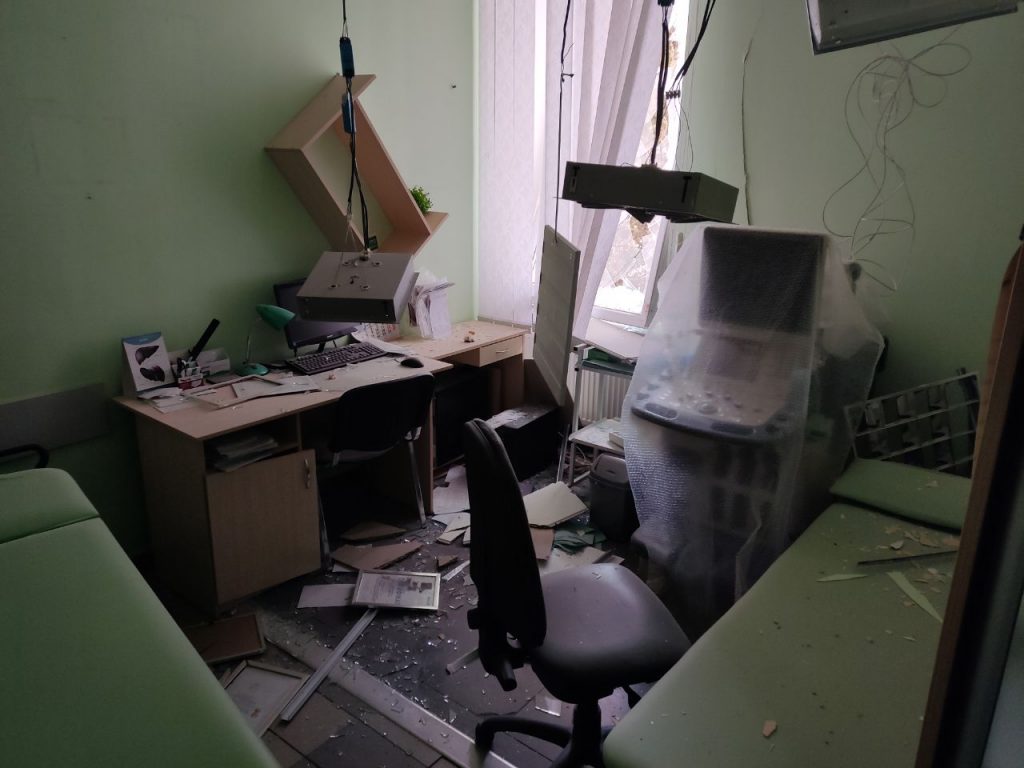
Mariupol, March 2022, office of the 3-D Gastro Medical Center after the shelling, photo: Eduard Zarubin
Air strikes on the city began on March 9. The planes flew very fast and low, and Eduard’s choice of targets remained unclear, as they targeted hospitals, schools, the Neptune Drama Theater and the pool, where women and children were hiding from shelling, as well as large intersections where people could be. Attacks on these objects were constant and probably deliberate, because Eduard Zarubin emphasizes – he saw ammunition hit in the same places several times:
“I used to be sure that bombs never fall in the same place twice, but I was wrong, as it turned out.”
The bombing of the high-rise building immediately destroyed three upper floors, and large fires broke out, which the city’s utilities did not even try to put out due to continuous shelling. Dwelling houses burned like candles, private cars in the yards burned constantly. It was possible to die from the fall of the air bomb only due to the action of the blast wave, that’s how Eduard’s acquaintance died – he was thrown with such force and hit the wall.
But even in such conditions Mariupol communal services tried to keep the work of hospitals, which continued to provide assistance to city residents:
“The transport did not work, the transport was completely burned in Mariupol… However, the people in charge of transport in the city delivered diesel to hospitals to the last. Because diesel was very necessary to have at least some light, to be able to operate on people, because dozens of people came to hospitals… “.
As soon as the Zarubin family managed to leave Mariupol, Eduard learned that diesel fuel in the city had run out, hospitals stopped working and patients began to die.
Summing up his several weeks of experience living in the besieged city, Eduard can not restrain his feelings:
“I still, after a month, can’t explain why and what for such a barbaric war is! They probably did the same in Grozny… Why then – with Grozny it was possible, and with Mariupol – it is impossible ?! I ask myself why I am so sure … Maybe because 2022, and you would never have thought that it is possible to conduct such a barbaric “special operation” in the heart of Europe! “
***
The story of Eduard Zarubin is important not only as evidence of a deliberate humanitarian catastrophe in prosperous Mariupol, but also as a deliberate attack on medical facilities that are strictly prohibited – both the Geneva Conventions and the Rome Statute of the International Criminal Court. These actions of the russian military are classified as a war crime in accordance with paragraph XXIV of Art. 8: “Deliberately striking at buildings, materials, medical facilities and vehicles, as well as personnel using distinctive emblems established by the Geneva Conventions in accordance with international law”.
We remind you that Vostok SOS has been collecting information on war crimes since 2014 in order to ensure justice. If you have witnessed or been a victim of a war crime, report it to Vostok SOS documentaries. We believe that war criminals will be punished!
You can report a war crime by phone:
+38 099 297 64 34
+38 099 736 42 41
+38 068 664 21 04
+38 068 827 28 95
+38 095 374 82 70
Or by sending your story to: [email protected]
